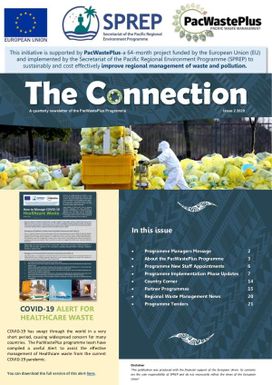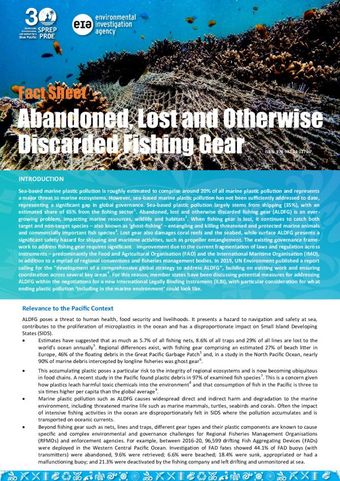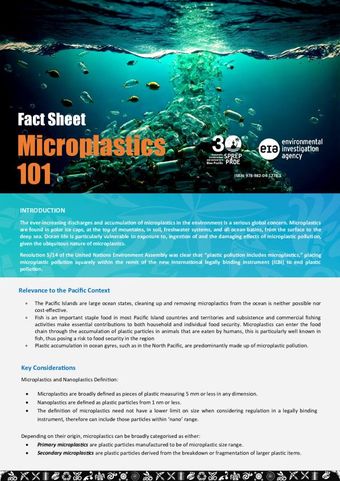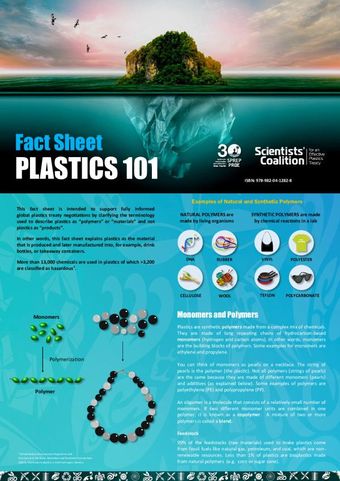PacWastePlus Connection newsletter - Issue 2 2020
- Description:
- In battling the COVID-19 around the world we see the impacts of this pandemic to our ecosystems. As people are staying home it gives time to our ecosystem to bounce back and recover itsef. But in attempt to to reduce possible transmission, the rise of disposables is on the increase, in countries where fast-food chains and restaurants still remain open, they are switching to entirely disposable packaging and away from re-useale items. But in re-opening our boarders as an increase in disposables we will see littering, marine pollution and will continue to exacerbate damage to our fragile ecosystem. Not only the impacts of the global pandemis, but also the devastation caused by Tropical cyclone Harold on our friends, Solomon Is, Vanuatu, Fiji and Tonga. But due to restriction of travel it has been diffucult to provide assistance to these countries. However staff from WMPC, JPRISM II and PWP stand ready to support with remote technical advice whenever needed.
- Display date:
- 2020
- Location:
- Pacific Region
- Collections:
- Secretariat of the Pacific Regional Environment Programme (SPREP)
- Publisher:
- Secretariat of the Pacific Regional Environment Programme (SPREP)
- Content partner:
- Secretariat of the Pacific Regional Environment Programme (SPREP)
- Availability:
- Not specified
-
Copyright status: All rights reservedFind out more about what you are able to do with this itemThis item is all rights reserved, with means you'll have to get permission from Secretariat of the Pacific Regional Environment Programme (SPREP) before using it. For more information, please see our use and reuse page.What can I do with this item?Non-infringing useNZ copyright law does not prevent every use of a copyright work, and this item may be hosted by an international institute or organisation. You should consider what you can and cannot do with a copyright work.No sharingYou may not copy and/or share this item with others without further permission. This includes posting it on your blog, using it in a presentation, or any other public use.No modifyingYou are not allowed to adapt or remix this item into any other works.No commercial useYou may not use this item commercially.
Related items
Welcome and warm Pasifik greetings
The information on this site has been gathered from our content partners.
The names, terms, and labels that we present on the site may contain images or voices of deceased persons and may also reflect the bias, norms, and perspective of the period of time in which they were created. We accept that these may not be appropriate today.
If you have any concerns or questions about an item, please contact us.



